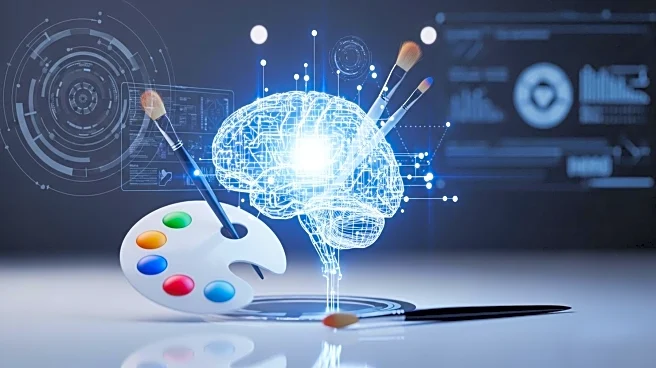What's Happening?
The healthcare marketing sector is undergoing a significant transformation as it integrates AI and modern technology to better engage with younger audiences. Traditional advertising methods, such as television and radio, are losing their effectiveness, particularly among younger generations who are increasingly consuming media through digital platforms. The industry is exploring innovative approaches like augmented reality experiences and digital humans in advertisements to protect patient confidentiality and tell compelling stories. These new formats aim to attract a younger audience and break away from outdated workflows that have long dominated healthcare marketing. The shift is driven by the need to adapt to changing consumer behaviors and expectations, with platforms like TikTok influencing the demand for more interactive and relatable content.
Why It's Important?
This shift in healthcare marketing is crucial as it addresses the evolving media consumption habits of younger generations, who are less engaged with traditional media. By adopting AI and creative technologies, healthcare companies can create more engaging and personalized content, potentially increasing their reach and impact. This transformation also highlights the industry's need to stay competitive and relevant in a rapidly changing digital landscape. Companies that successfully integrate these technologies may gain a competitive edge, attracting a broader audience and enhancing their brand visibility. The move towards innovative marketing strategies reflects a broader trend across industries to leverage technology for more effective consumer engagement.
What's Next?
Healthcare companies are expected to continue exploring and investing in AI and creative technologies to further enhance their marketing strategies. This may involve establishing research and development functions within marketing teams to identify and implement new technologies. As the industry adapts to these changes, there may be a shift in how healthcare content is produced and distributed, with a focus on interactivity and relatability. Companies that embrace these changes may see improved engagement with younger audiences, while those that resist may struggle to maintain relevance. The ongoing evolution of media consumption habits will likely drive further innovation in healthcare marketing.
Beyond the Headlines
The integration of AI and creative technologies in healthcare marketing raises ethical considerations, particularly around patient confidentiality and data privacy. As digital humans and AI-driven content become more prevalent, companies must ensure that these technologies are used responsibly and transparently. Additionally, the shift towards more interactive and personalized content may influence broader cultural perceptions of healthcare, potentially changing how consumers view and interact with healthcare brands. This transformation could also lead to long-term shifts in marketing strategies across other industries, as companies seek to replicate successful approaches from the healthcare sector.










